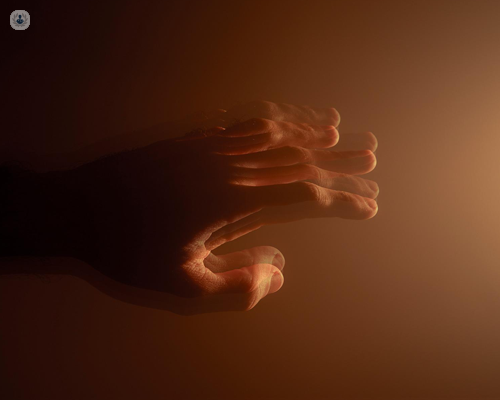Chorea
Professor Alastair Noyce - Neurology
Created on: 03-28-2017
Updated on: 10-20-2023
Edited by: Conor Lynch
What is chorea?
Chorea is an abnormal involuntary movement disorder characterised by the rapid movement of the hands or feet that are similar to when someone is dancing. These movements can range from minor and fidgety movements to movements that are more expansive, which can be fast or slow and the person can sometimes be seen to be moving in pain. The word chorea comes from the Greek word choros, meaning to dance.

What are the symptoms of chorea?
There are many symptoms associated with chorea. The main ones are as follows:
- tongue sliding in and out of the mouth
- speech problems
- headaches
- seizures
- involuntary muscle movements
What causes chorea?
There are many associated conditions or suspected causes of chorea. For example, Huntington’s disease can cause chorea symptoms. Other genetic disorders can also cause the condition, while a streptococcal infection or rheumatoid fever can have the after-effects of bringing on chorea symptoms, especially in children and adolescents.
There are other associated disease such as AIDS and other immune, endocrine, and metabolic diseases that can bring on the symptoms of chorea. There is a specific type of chorea that only occurs in pregnancy (chorea gravidarum) and subsides once the woman has given birth.
How is chorea treated?
Due to the diverse causes and factors associated with the disease, the treatment must first involve an accurate diagnosis of the cause and origin of the particular case.
Some diseases like Huntington’s have no known cure, while other cases can be treated with medication that affects the dopamine receptors in the brain, others with electrode treatment like deep brain surgery, and others with antibiotics.
How is chorea diagnosed?
The condition can be diagnosed by the following tests:
What is the outlook for patients with chorea?
Generally, people can live up to between 15 and 25 years more after being diagnosed with chorea.
Which specialist treats chorea?
Neurologists are specialised in treating the condition.
